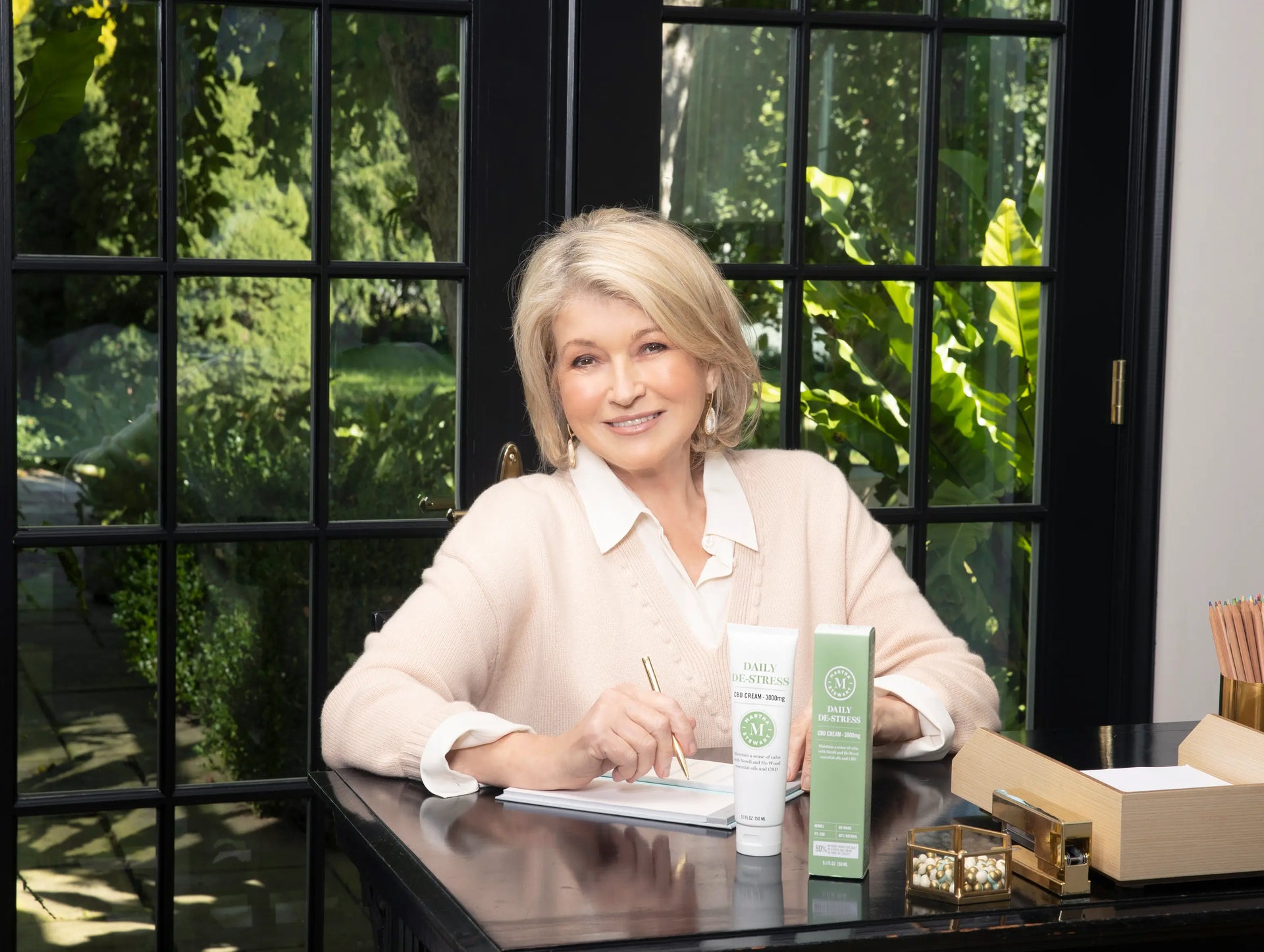Martha knows self-care is important to live your best life. She found that CBD supplements enhanced her own health and wellness, especially when it came to managing stress. That is why she paired with leading scientists to develop her own line of CBD wellness products. She hand-selected each flavor profile based on her own recipes to create a delicious and rewarding CBD experience.
WHAT IS CBD?
CBD (short for cannabidiol) comes from a hemp or non-hemp plant that is a variety of the cannabis sativa plant. CBD is a therapeutic compound that reacts with the body’s receptors without having an intoxicating effect (like THC). In fact, it is believed that CBD can help balance the body and maintain vital health functions. Studies have shown that CBD can help people feel more relaxed, calmer and less stressed.
IS ALL CBD THE SAME?
On a molecular level, all CBD is structurally the same, however, not all CBD is created equally. If you purchase a product that isn’t tested and regulated, the actual amount of CBD concentration can’t be determined. Also, you won’t know if harsh fertilizers or chemicals have been used in the process.
Martha Stewart Wellness CBD products use only the purest, safest CBD isolate derived from 100% natural US hemp. CBD isolate is created by repeatedly refining the hemp extract to guarantee very precise amounts of CBD with highly consistent results and no THC content.
Natural. Safe. Healthy. Delicious. Martha wouldn’t have it any other way.
